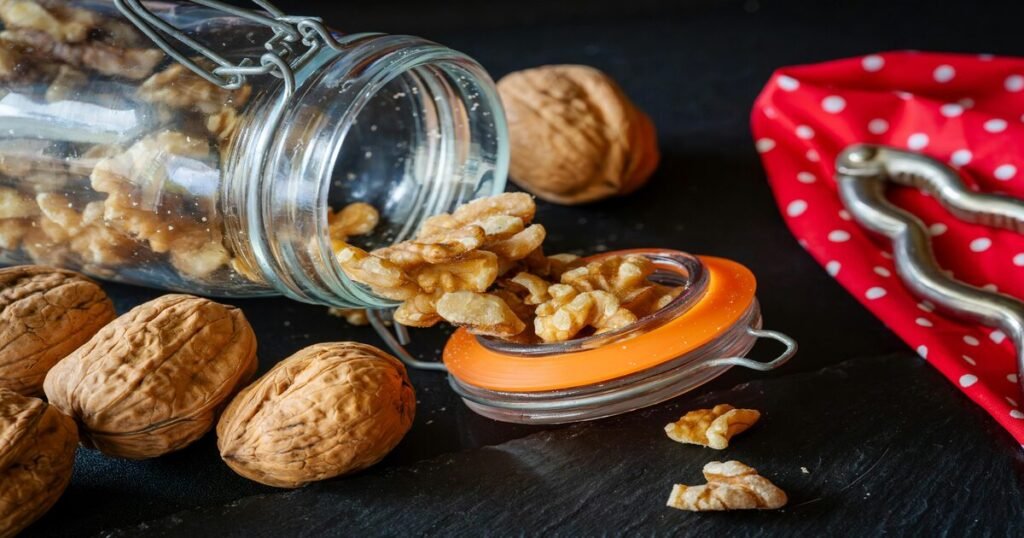During pregnancy, the choices made by expectant mothers about their diet is more important than ever. While nuts are often hailed as a nutritional powerhouse, it’s essential to understand that there are certain nuts to avoid during pregnancy to ensure both health and the well-being of the baby as well as the pregnant women. Knowing which nuts to steer clear of can help these ladies to navigate this crucial period with greater confidence and peace of mind.
NUTS TO AVOID DURING PREGNANCY : The Role of Allergens & Aflatoxins in Nuts
One of the key reasons why certain nuts are to be avoided during pregnancy is their potential to trigger allergic reactions. Nuts like peanuts and tree nuts are among the most common allergens, and during pregnancy, the body may react differently than usual. In some cases, exposure to these nuts might not only affect the body but could also increase the risk of their baby developing allergies later in life. Therefore, understanding which nuts are known allergens and why they are nuts to avoid during pregnancy is crucial.
Another significant concern when considering nuts to avoid during pregnancy is the presence of aflatoxins. These toxic compounds, produced by certain molds that can grow on nuts such as peanuts and pistachios, are not only harmful to the liver but are also known carcinogens. The implications for fetal development make it particularly important for pregnant women to avoid nuts that might be contaminated with aflatoxins.
1. Specific Nuts to Avoid: Peanuts
Peanuts are often at the top of the list of nuts to avoid during pregnancy due to their high allergenic potential and susceptibility to aflatoxin contamination. If the expectant mother is allergic to peanut, it is imperative to avoid peanuts entirely during pregnancy. Even if they don’t have a history of peanut allergies, some experts suggest caution, as exposure could increase the risk of their child developing a peanut allergy. This is why peanuts are considered among the nuts to avoid during pregnancy.
2. The Controversy Around Walnuts
Walnuts are another type of nut that warrants careful consideration during pregnancy. While they are rich in omega-3 fatty acids, which are beneficial, they also contain phytoestrogens. These plant-derived compounds can mimic estrogen in the body, potentially affecting hormonal balance. Although walnuts are generally considered safe, their inclusion in the category of nuts to avoid during pregnancy might be advisable for women concerned about the effects of phytoestrogens on fetal development.
3. Avoiding Cashews Due to Oxalates
Cashews, though nutrient-rich, contain high levels of oxalates, substances that can contribute to the formation of kidney stones. Given that pregnant women are at an increased risk of kidney stones, cashews are often listed among the nuts to avoid during pregnancy. Consuming large amounts of oxalate-rich foods like cashews could exacerbate this risk, making them a nut that some pregnant women may choose to avoid.
4. The Issue with Brazil Nuts and Selenium Toxicity
Brazil nuts, while a potent source of selenium, must be consumed with caution during pregnancy. Selenium is essential for health, but too much can lead to toxicity, causing symptoms like nausea and hair loss. Due to the potential for selenium toxicity, Brazil nuts are frequently mentioned as nuts to avoid during pregnancy, particularly when consumed in large quantities.

5. Pine Nuts and the Risk of Pine Mouth Syndrome
Pine nuts are generally safe, but they are associated with a condition known as pine mouth syndrome, which causes a bitter, metallic taste that can last for weeks. While not harmful, this unpleasant side effect is particularly unwelcome during pregnancy, when taste and smell are already heightened. To avoid this discomfort, pine nuts might be categorized among the nuts to avoid during pregnancy.
6. General Guidelines for Nut Consumption During Pregnancy
While it’s important to know the specific nuts to avoid during pregnancy, it’s equally vital to follow general guidelines for nut consumption. Moderation is key—eating a variety of nuts in small quantities can offer nutritional benefits without the associated risks. Ensure that any nuts they consume are fresh and sourced from reputable suppliers to avoid issues like aflatoxin contamination. By being mindful of these guidelines, they can enjoy nuts safely during pregnancy.
Conclusion: Making Informed Choices About Nuts During Pregnancy
In conclusion, understanding the nuts to avoid during pregnancy—such as peanuts, walnuts, cashews, Brazil nuts, and pine nuts—can help protect the health of both the pregnant woman and her unborn child. Each of these nuts presents unique risks that may outweigh their nutritional benefits during this critical time. By being informed and cautious, they can make dietary choices that support a healthy pregnancy. Remember, when it comes to nuts to avoid during pregnancy, it’s always best to consult with healthcare provider to ensure the best outcomes for the pregnant mother and their baby.
You may also find interest in Things a Pregnant Woman Needs to Eat
